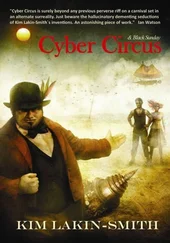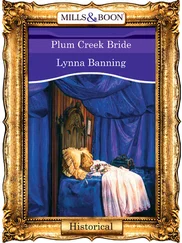“What about music?”
“Yeah, you know, I’m playing out some, making some contacts, trying to pick up some session work. I was on the road for fucking ever. I came out here and I said, never again. This is the place, man. This is where shit happens. Have you been?”
“To California? No.”
“You ought to check it out. It’s wild.”
“I hear the weather’s perfect.”
“You’d love it. You should come, you really should.” He’s getting loud, insistent. “Come see me. Come for Christmas.”
“What?”
“Or New Year’s. Come spend New Year’s with me. I’ll show you a good time.”
She waits for his laugh. He used to do that — let people take him seriously, then laugh. Even when he was serious he thought it was funny when people took him seriously.
“We’ll have a blast,” he says. “It’ll be just like old times, only better.”
She can’t believe she’s having this conversation. She still can’t believe she picked up the phone and dialed Roland’s number and he answered.
She knows better than to take him seriously. Even if L.A. at New Year’s is exactly the kind of adventure she needs.
“My astrologer says I should travel,” she says.
“Always listen to your astrologer.”
“Is this a serious invitation, Roland?”
“Abso-fucking-lutely.”
She packs early. She hopes that packing will make the trip seem real. She packs her paisley skirt, her tightest jeans, her black boots, her black jacket. She is thrilled and sickly nervous; she’s also (though she wouldn’t admit it) embarrassed to be traveling back in time to someone she used to know. Is this the only adventure she could come up with? Hasn’t she outgrown Roland?
And what must Roland think? Does she seem as lonely and desperate and pathetic to him as the professor now seems to her?
“I’m going to California to spend New Year’s with an old friend,” she tells John Dunn when she asks for time off. She says it casually. California . A word luscious as a piece of fruit.
John Dunn doesn’t ask questions, or point out that this trip isn’t the sort of thing Addie does. “I’ll give you a ride to the airport,” he says.
She’s braced for the obvious — the long flight, the strange city. But the flight is just a droning bus ride in the air. Los Angeles, too, is easy: a big, lazy, sprawled-out sunbather of a city where you can never be entirely lost because every street and neighborhood, every building, no matter how ordinary, is a place you’ve heard of.
She’s less prepared for smaller things. The smell of diesel in the LAX terminal, making her afraid to breathe. The crush of people headed there, there, there. People with other people waiting for them. She claims her bag and finds a place to sit. She checks her watch, freshens her makeup, tugs at her dress and tries to convince herself she looks like someone a man would want to drive to the airport and pick up. Twice she calls Roland’s apartment but there’s no answer and no machine. She waits forty-five minutes. The crowd thins. She starts to panic. People actually stop for her. “Is there some problem, miss?” “Can I call someone for you? A cab?”
God deliver me , she thinks, from the kindness of strangers .
Then she sees him. She knows him first by his walk, lean and smooth, his feet gliding along as if they don’t quite touch the ground. He’s wearing a denim jacket and a black T-shirt that says “Déjà Voodoo.” He has a mustache and his hair is cut in a mullet, short in front, layered on the sides, long in back. He looks like he just walked off an album cover.
“Baby,” he says, “I’m sorry. I couldn’t find a place to park.” He smiles the lopsided, apologetic smile she remembers, and opens his arms, and she, too relieved to be angry, falls in.
She can tell from his apartment that there’s a woman. Air freshener plugged into an electrical socket. An open box of baking soda in the refrigerator. A blouse in the closet.
There’s only one closet; the apartment is an efficiency, no bigger than a motel room, with painted cinderblock walls and a filmy picture window. Roland takes her suitcase to the closet and pushes his clothes to one side, and there, crumpled on the floor in back, is a faded pink blouse with brown underarm stains. She pretends not to notice, but it gives her a quick, sharp pain, that blouse.
Roland invites his friends Pete and Golita over to meet her. “Un-fucking-believable,” he tells them. “We haven’t seen each other in, like, ten thousand years, and then out of the blue she calls me up, and now here she is.”
“Nice.” Pete nods. He has wild orange hair like the singer in Simply Red. He’s sitting at Roland’s counter tapping a small pile of white powder onto a mirror, chopping it with a razor blade, carving it into thin lines. He passes Addie a rolled-up dollar bill. “Company first.”
“I don’t know how.”
“Breathe in. Don’t breathe out.”
She holds the dollar straw to one nostril, closes the other with her finger, and leans down. The powder burns her nose. Her eyes water. The back of her throat tastes bitter. Her ears start to buzz.
Roland touches her. “Okay?”
“Yeah, I’m good.” She smiles at his feathered hair. She smiles at his apartment, so tiny, so— efficient . The sofa unfolds into a bed; the dinette table holds his phone, stereo, and portable TV; the floor lamp doubles — triples — as a table and magazine rack.
“So, Addie,” says Golita. She has blue saucer eyes and a Carly Simon mouth. She is bosomy like Carly, dark blond, a singer herself. She sings nights and works days at Ready Set with Pete and Roland. “How come Roll never told us about you?”
On the boardwalk, which is not boards but pavement, everything moves fast and smooth and so do they, graceful as wild animals. Addie can’t tell if she’s walking or running or gliding or flying or dreaming. They serpentine through a strange circus of weightlifters, street skaters, men swallowing fire, guitar players on unicycles, women telling fortunes.
“The bar’s around the corner,” Golita says.
They follow her out of the crowd and into a small yellow building. Inside it’s all dark wood paneling with a Maple Leaf flag over the bar, a jukebox on the far wall, and a single pool table in the middle of the room. Pete buys beer, Golita puts quarters in the jukebox and Roland puts quarters in the table. He hands Addie a cue stick and shows her how to hold it, standing behind her with his arms on hers.
“I’m a slow learner,” she says.
“I’ve got all night,” he says.
She loses every game. She doesn’t care. “Buy me another round,” she says. “Rack ’em.”
They monopolize the table until closing time. They walk home a different way, past giant murals and cafés (they haven’t eaten but no one mentions food; no one is hungry), under swishing palm fronds. The night sky has faded to purple — an incandescent, glowy purple. Out here, it never gets completely dark.
When Roland opens the sofa bed there is a smell like salted cashews. The smell of sex.
He offers to sleep on the floor but she tells him no, she doesn’t mind sharing. She turns out the lights and gets in bed without taking off her dress. She rolls onto her side, facing the wall, her back to Roland, and listens to the muffled sounds of traffic from the street and the distant moan and hiss of the ocean. She listens to Roland, unzipping his pants.
He lies down behind her, slides his hand under her dress.
She touches his hand, guides it.
He doesn’t hurry. He takes a long time this time. She doesn’t think he’ll ever finish.
In the morning, they shower together and towel off in the tiny bathroom. Roland opens a canister of mousse, sprays a little in his hand, lets it swell to the size of a golf ball, and works it into his wet hair. He hangs his head upside down between his legs and aims the blow dryer straight up—“for volume,” he says, a trick he learned in show business.
Читать дальше












